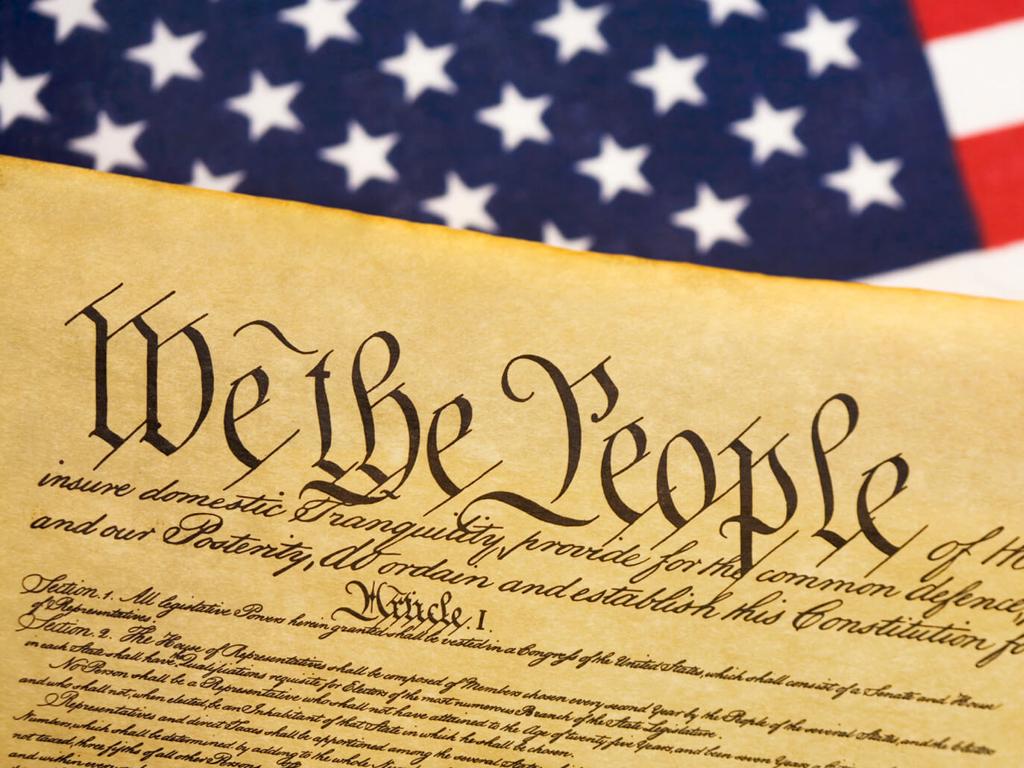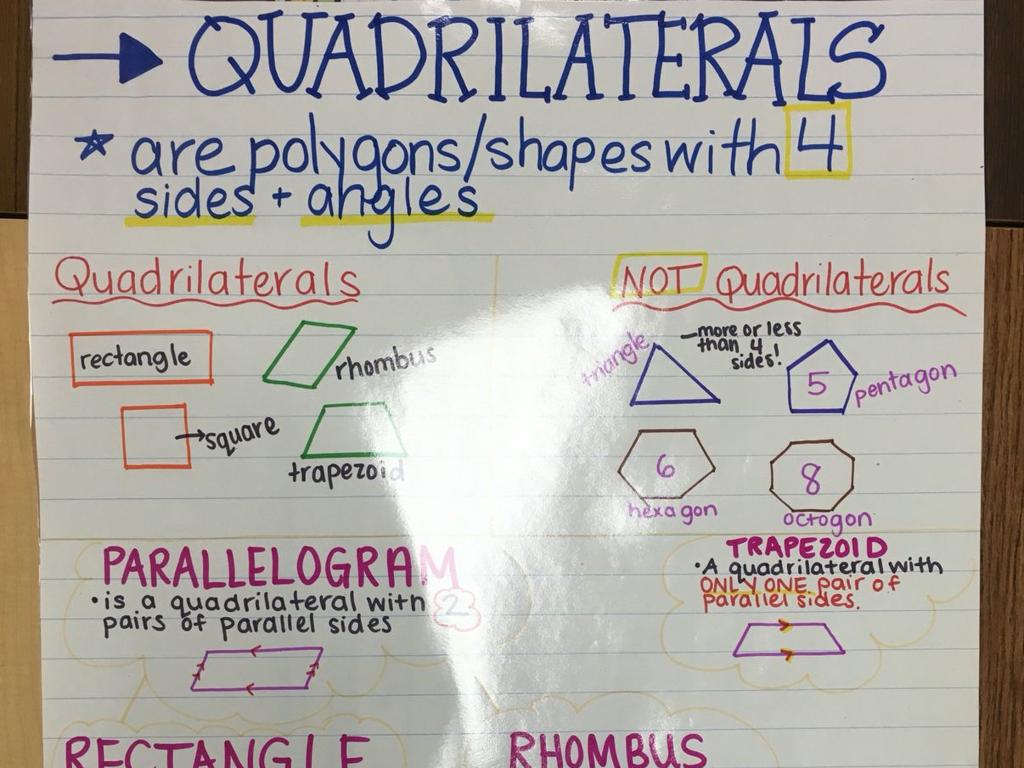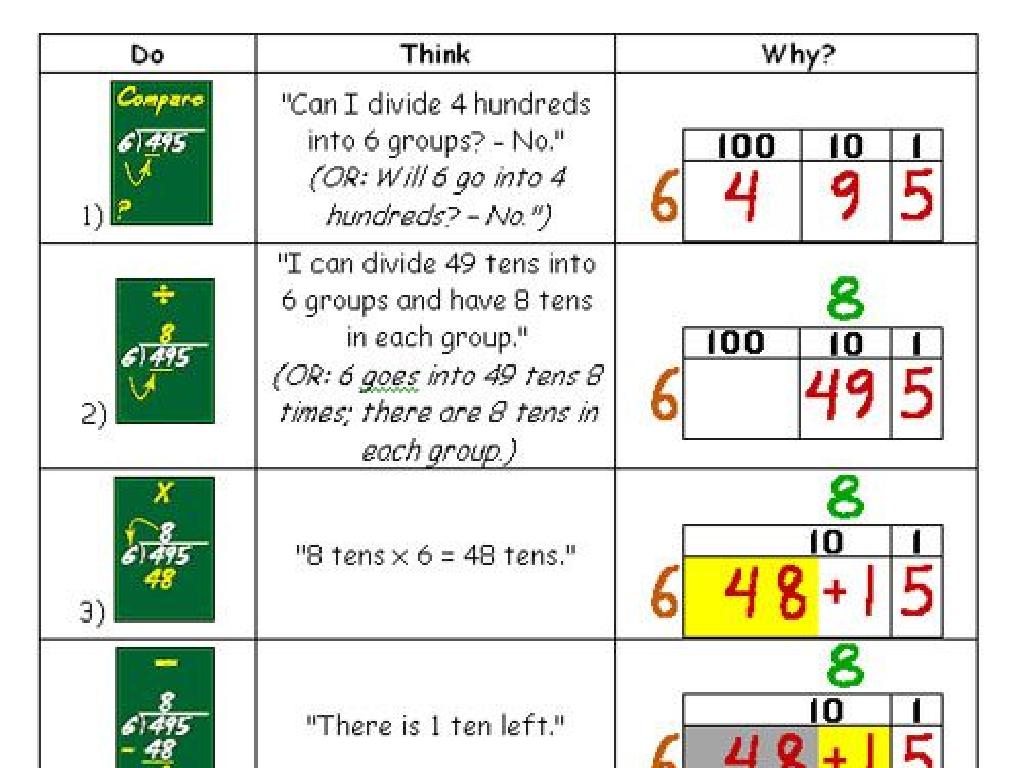French And English Expeditions: Part Ii
Subject: Social studies
Grade: Eighth grade
Topic: Age Of Exploration
Please LOG IN to download the presentation. Access is available to registered users only.
View More Content
French and English Expeditions: Part II
– Recap: Expeditions Part I
– Review key explorers and routes from Part I
– Today’s Focus: Part II
– Explore the impact and outcomes of later expeditions
– Learning Objectives
– Understand the motivations, challenges, and achievements
– Key Questions
– What were the long-term effects of these expeditions?
|
Begin with a brief recap of the previous lesson, highlighting the main explorers and routes covered in French and English expeditions: part I. Transition to today’s lesson by outlining the continued journey and impact of these expeditions in part II. Clearly state the learning objectives, such as understanding the motivations behind the expeditions, the challenges faced by explorers, and the achievements they made. Engage students with key questions that will be answered during the lesson, such as the long-term effects of the expeditions on the world. This will set the stage for a deeper dive into the historical significance of the French and English in the Age of Exploration.
The Motivations Behind Exploration
– Economic motivations for exploration
– Seeking wealth through trade, spices, and gold
– Political competition and trade routes
– Nations competed for control of new, lucrative trade routes
– Explorers’ quest for fame
– Personal glory and historical legacy were significant incentives
– National pride in exploration
– Explorations were a source of prestige for the explorers’ countries
|
This slide delves into the various motivations that spurred the French and English to embark on their expeditions during the Age of Exploration. Economic factors included the search for new sources of wealth, such as spices and precious metals. Politically, nations were in a race to find and control trade routes that would give them an edge over rivals. Explorers themselves were often driven by the desire for personal fame and recognition. Additionally, successful voyages were a matter of national pride, enhancing the stature of the country on the global stage. Encourage students to think about how these motivations compare to modern-day exploration, whether in space, the ocean, or technology.
French Expeditions: Explorers & Legacies
– Samuel de Champlain’s role
– Known as the ‘Father of New France’, established Quebec
– Jacques Cartier’s voyages
– First European to describe and map the Gulf of Saint Lawrence
– Mapping French explorers’ routes
– Trace the paths taken through North America, highlighting key areas
– Quebec: Founding & Indigenous relations
– Discuss the establishment of Quebec and interactions with native tribes
|
This slide introduces students to the significant French explorers Samuel de Champlain and Jacques Cartier, emphasizing their contributions to the Age of Exploration. Champlain’s role in founding Quebec and fostering relations with Indigenous peoples is a focal point, as is Cartier’s mapping of the Gulf of Saint Lawrence. Use maps to visually trace the routes these explorers took, and discuss the lasting impact of their expeditions on North American history. Encourage students to consider the effects of these encounters from multiple perspectives, including those of the Indigenous populations.
English Expeditions: Explorers & Impact
– Discover John Cabot’s voyages
– Cabot’s 1497 voyage claimed land for England, starting English exploration.
– Learn about Sir Francis Drake’s feats
– Drake was the first Englishman to circumnavigate the globe, enhancing English prestige.
– Map English routes in North America
– Trace the paths taken by Cabot and Drake, noting areas of influence.
– Explore impacts on colonization & trade
– These expeditions led to English settlements and opened new trade opportunities.
|
This slide introduces students to key figures in English exploration during the Age of Exploration, specifically John Cabot and Sir Francis Drake. Cabot’s voyages laid the groundwork for future English claims in the New World, while Drake’s circumnavigation bolstered English maritime prowess. Mapping the routes provides a visual understanding of the extent of English exploration and its strategic locations. Discuss the long-term effects of these expeditions, including the establishment of colonies and the expansion of trade routes, which would eventually lead to the growth of the British Empire. Encourage students to consider the motivations behind these expeditions and their consequences for indigenous populations.
Comparing French & English Expeditions: Impact on the Modern World
– Objectives of French vs. English
– Both sought new trade routes and wealth, but French also focused on spreading Christianity
– Outcomes of their expeditions
– English established colonies, while French created extensive trade networks with natives
– Long-term effects on societies
– Colonization led to cultural exchanges and conflicts, shaping modern national borders
– Expeditions’ influence today
– Our global map and international relations were influenced by these expeditions
|
This slide aims to compare and contrast the French and English expeditions during the Age of Exploration, highlighting their objectives, outcomes, and lasting effects on the modern world. While both nations aimed to discover new trade routes and accumulate wealth, the French were also driven by the desire to spread Christianity. The English were more focused on colonization, which led to the establishment of permanent settlements. The long-term effects of these expeditions include significant cultural exchanges, conflicts, and the eventual shaping of modern national borders. It’s crucial to discuss how these historical events have influenced contemporary global geography and international relations. Encourage students to think critically about how the past has shaped the present and to consider the different motivations and impacts of these European powers.
Life on the Expedition: Daily Challenges
– Hardships faced by explorers
– Long voyages, diseases, scarce food
– Navigational challenges
– Reliance on stars, compass, emerging tech for direction
– Interactions with indigenous peoples
– Exchanges, conflicts, and cultural impacts
– Impact on the environment
– Exploitation of resources, introduction of new species
|
This slide aims to give students a realistic understanding of the difficulties encountered during French and English expeditions. Discuss the severe conditions such as scurvy from lack of vitamin C, cramped quarters, and storms at sea. Highlight the evolution of navigational tools from the astrolabe to the magnetic compass, and the use of celestial navigation. Explore the complex relationships between explorers and indigenous populations, including trade, the spread of diseases, and cultural exchanges. Emphasize the environmental consequences of exploration, such as overhunting and the introduction of invasive species. Encourage students to empathize with the sailors and consider the lasting effects of these expeditions on world history.
Role-Play: French vs. English Expeditions
– Divide into French/English groups
– Role-play assigned expedition scenarios
– Imagine being an explorer: What challenges did you face?
– Discuss historical figures’ experiences
– Consider the motivations and hardships of the explorers
– Reflect on the role-play activity
– How did the activity change your view of the expeditions?
|
This class activity is designed to engage students with the material by having them step into the shoes of French and English explorers during the Age of Exploration. By dividing the class into groups, students can collaborate to create and act out scenarios that their assigned expedition might have encountered. This role-play will help them understand the different perspectives, challenges, and motivations of historical figures. After the role-play, facilitate a discussion to help students articulate their experiences and insights. Encourage them to reflect on how the activity may have altered their perception of the historical events. Possible scenarios include navigating unknown waters, negotiating with indigenous peoples, or overcoming natural obstacles.
Conclusion: The Age of Exploration
– Recap of French & English expeditions
– Summarize the journeys, discoveries, and impacts of these expeditions.
– Significance of historical insight
– Understanding history helps us learn from the past and shapes our future.
– Homework: Explorer’s diary entry
– Imagine being an explorer: What did you discover? What challenges did you face?
– Reflect on today’s discoveries
|
As we wrap up today’s lesson on French and English expeditions, encourage students to summarize the key explorers and their discoveries, emphasizing the impact these expeditions had on the world. Highlight the importance of learning history to avoid past mistakes and to understand the context of our present world. For homework, students should write a diary entry as if they were an explorer, reflecting on the challenges and excitement of their journey. This activity will help them empathize with historical figures and apply their knowledge creatively. In the next class, we can discuss these reflections to deepen our understanding of the explorers’ experiences.






